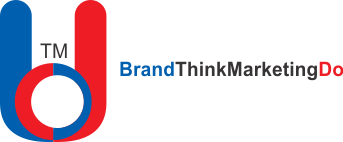Grapevine
How did you choose…..?
… You’re Doctor?
… The school your kid studies in or you studied in?
… The course you studied in?
… Driver?
… The house you live in?
… The lands you have bought ?
… The latest gadget you shopped ?
… An advocate to get an expert opinion?
… The travels or the hotel you stay when you travel?
… A Musician for your kid?
… The restaurant you dined recently?
… The Spa/fitness centers?
… The Music you bought?
… Coach for your kids sporting activities?
… You’re Insurance?
… Your investments?
The questions are endless, but all these questions have just one common answer. If you have not guessed it right…? It is because someone told you the best Doctor in the town, to the school, to the course, to the recent investments you have made…We trust words of people. Word of mouth is the fastest growing marketing vehicle. word-of-mouth recommendation from a trusted source which “cuts through the noise” of traditional marketing methods. Word of mouth marketing: Giving people a reason to talk about your products and services, and making it easier for that conversation to take place.
Word-of-mouth recommendations can move consumers to make a purchase. Word-of-blog, on the other hand, is far less persuasive.
According to Mintel, 34% of US Internet users who bought a product or service based on a recommendation got that tip from a friend or relative, while one-quarter bought based on advice from a spouse or domestic partner.
Lower on the list were bloggers and chat rooms. While bloggers may bring buzz to a product, converting the buzz to sales is another matter—unless, of course, the blogger is a friend.It’s interesting to find that as much time as we spend online, we still prefer a personal recommendation from someone we know and trust.The most common reason that Internet users recommended a product or service was price, followed by quality and convenience.
“The sheer number of people that purchase based on recommendations proves marketers need to pay attention to word-of-mouth,” said Mr. Haack of Mintel.
Build a good product and consumers will spread the word—probably to people they actually know.
Do you know 85% of the advertisements are not looked at in spite of them being right about everything? But no one looks, they ignore. The total number of ads on TV, Print and radio together everyday exceeded 65,000 last year. An average consumer is bombarded by an estimated 3,000 advertising messages from all forms of media excluding Internet. So how does your brand win? Well, the simple proposition is that a successful brand belongs to the consumer, not the marketer. Go head create a sense of belongingness. Make them to be your brands spokesperson and for sure they will become your brands evangelists if you make your brand work for them.
Word of mouth marketing: Giving people a reason to talk about your products and services, and making it easier for that conversation to take place.
It is the art and science of building active, mutually beneficial consumer-to-consumer and consumer-to-marketer communications. Word of mouth marketing empowers people to share their experiences. It’s harnessing the voice of the customer for the good of the brand. And it’s acknowledging that the unsatisfied customer is equally powerful. India comes fourth among the top ten countries which trust in recommendations from consumers, with Hong Kong topping the list with 93 per cent. Most of the top ten markets that rely most on “recommendations from consumers” are in Asia. They include Taiwan, Indonesia, South Korea and the Philippines. According to Neilson, in the case of India, 87 per cent of those who use the Internet trust others’ advice rather than any kind of advertising, proving that word-of- mouth is the most powerful advertising tool, a press release issued by the research agency found. Newspapers come second in the ‘most trusted list’, with 77 per cent saying so. Opinions expressed online and on brands’ Web sites were the third and fourth most trusted at 73 and 72 per cent, ahead of television, which came fifth as only 65 per cent said they were trustworthy.
With the emergence of web 2.0 ,today marketing dynamics have changed, technology has changed the way we live, communicate. Word of mouth is now word of mouse also and if marketers don’t understand the power WOM, just search for mouth shut .com.
In India new platforms like the Internet are beginning to slowly catch up with conventional media in terms of advertising revenues. The trust in opinions posted online shows that Indians are not averse to new forms of advertising, though in a nascent state and popular with only certain sections of the society, these have the potential to become an interesting advertising avenue for the marketers. It is time brands and marketers start working exclusively on WOM strategy.
Let us speak out…! What was the brand you spoke high/low to someone in the recent past? Just kindle your thoughts and share it, i am sure you would have raved/cursed about something…Let the marketers hear your thoughts.












Pingback: GAP to Gap | Brandthinkmarketingdo.com
A good depiction of the importance of the very relation between customer satisfaction and brand marketing… emphasis s mainly on satisfying the customers who make up the so called “BRANDS”
Valuable info. Lucky me I found your site by accident, I bookmarked it.
I can’t say that I completely agree, but of course I’ve never really thought of it quite like that before. Thanks for giving me something to think about when I’m supposed to have a blank mind while trying to fall asleep tonight lol…
Pingback: Starbuck’s Change | Brandthinkmarketingdo.com | Brandthinkmarketingdo.com